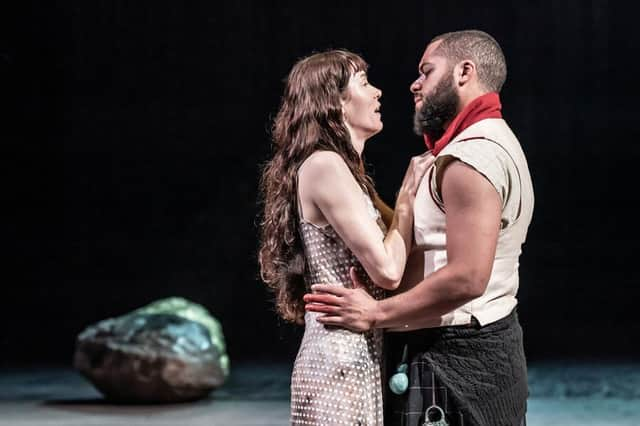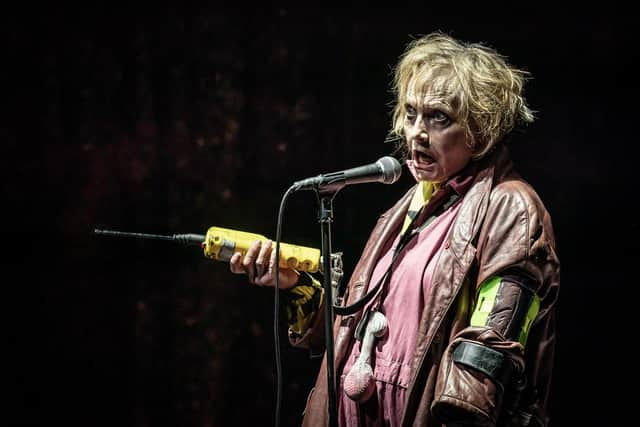Review: RSC's wild and unruly Macbeth is sometimes messy but ultimately magnificent


You wonder what all the fuss is about. And then you see what all the fuss is about and you think, well, maybe there should be even more fuss, because this is terrific.
The RSC has made much of casting Reuben Joseph in the lead role. Until June, he was playing another major lead role, in the musical phenomenon Hamilton in London. A cynic might have seen this as the venerable old company desperately courting a younger, hipper audience. So it is pleasing indeed to report that Joseph not only nails the part, but carves it, engraves it, sears it into the memory. Close your eyes, and there he is still.
Advertisement
Hide AdAdvertisement
Hide AdThere are times however when this outcome seems unlikely, when the whole thing feels like it might go badly wrong. Wils Wilson’s production is wild and unruly, which is all very well, but it sometimes veers into messiness. Much of the first half is oddly indistinct and amorphous. There is a lack of clarity and delineation, not helped by the modishly vague set and some watery performances. And it is sometimes unintentionally amusing, which is usually fatal for tragedies: the witches can be just a bit much; dead birds occasionally fall from the sky, absurdly.


Then there is the intentionally funny bit, which has also attracted much publicity. Wilson roped in the aridly acerbic Stewart Lee to rewrite the infamous Porter scene, said by some to have invented stand-up comedy; Shakespeare intended it to provide comic relief, but its references are often lost on today’s audiences. Lee’s version is certainly funny, and is delivered with mordant brilliance by Alison Peebles. Yet it feels like some of the ‘topical’ jokes (about such current figures as, er, Jennifer Arcuri) have dated little better than Shakespeare’s own (about, for example, the fashion for French trousers in the 1600s). And whether it functions dramatically is questionable: it shatters the mood so violently that the production takes a while to piece it back together.
Only towards the end of the first half does it all really start to work, but then it really works. Such is Macbeth’s torment upon seeing Banquo’s ghost that it is quite uncomfortable to watch. This tone heightens and deepens throughout the second half, which swirls with delirium and derangement. The ‘Tomorrow and tomorrow’ speech is brutal, and there are moments of true horror: the play suggests that Hell is near, and this production offers glimpses into it.
The strength of Joseph’s portrayal throughout all this lies in the wideness of the eyes. He is no cold psychopath: the innocence and vulnerability so abhorred by Lady Macbeth (played by Valene Kane with unsettling otherworldliness) remain with him, somewhere, somehow, until the end, intensifying the tragedy. Claire Windsor’s sound design will not be to everyone’s taste, but is integral to everything: the uncanny, discordant and sometimes deafening blaring from the onstage brass players sounds like it emanates from somewhere terrifying; the singing is celestial.
Advertisement
Hide AdAdvertisement
Hide AdThis Macbeth is a warning. There are forces beyond our control, forces that have the power to control us. Wilson and her team make them feel disturbingly real.
Until October 14. Visit rsc.org.uk/macbeth